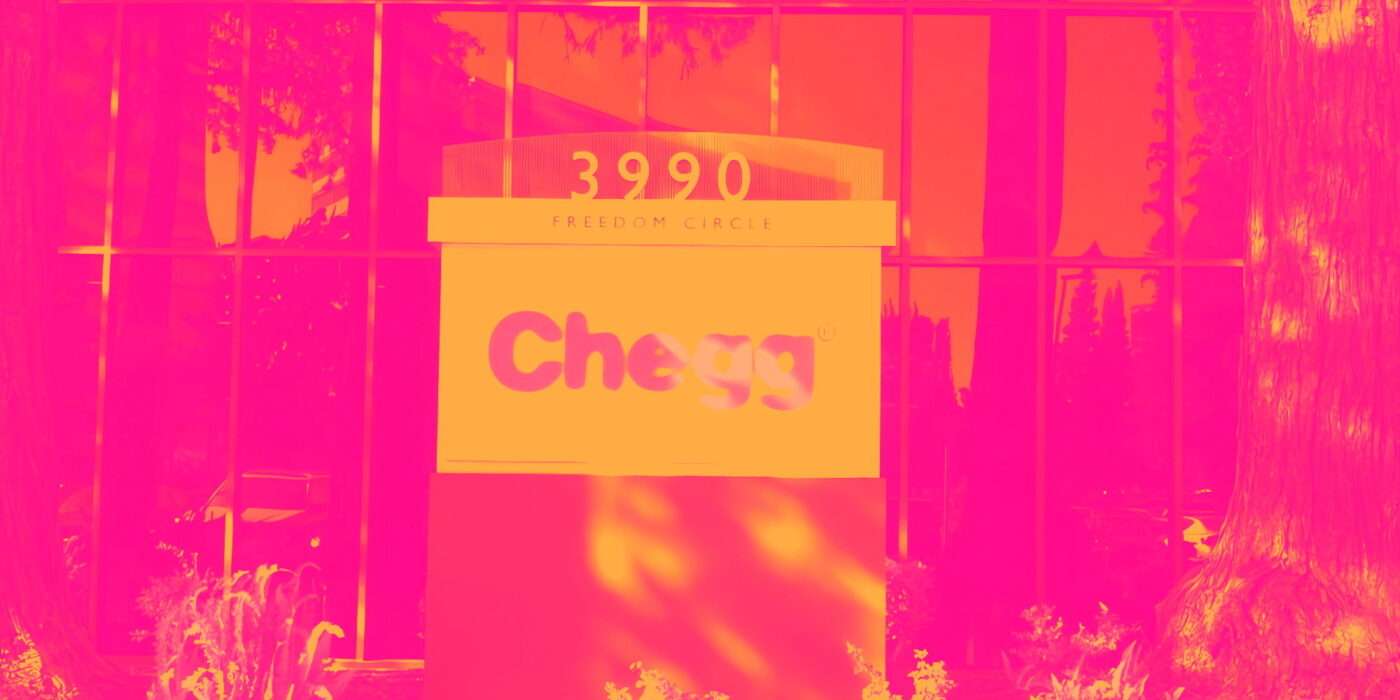
Investors looking for hidden gems should keep an eye on small-cap stocks because they’re frequently overlooked by Wall Street. Many opportunities exist in this part of the market, but it is also a high-risk, high-reward environment due to the lack of reliable analyst price targets.
The downside that can come from buying these securities is precisely why we started StockStory - to isolate the long-term winners from the losers so you can invest with confidence. Keeping that in mind, here are three small-cap stocks to avoid and some other investments you should consider instead.
Chegg (CHGG)
Market Cap: $129 million
Started as a physical textbook rental service, Chegg (NYSE:CHGG) is now a digital platform addressing student pain points by providing study and academic assistance.
Why Do We Think CHGG Will Underperform?
- Services Subscribers have declined by 13.4% annually over the last two years, suggesting it may need to revamp its features or user experience to stay competitive
- Inability to adjust its cost structure while its revenue declined over the last few years led to a 13.1 percentage point drop in the company’s EBITDA margin
- Sales were less profitable over the last three years as its earnings per share fell by 30.8% annually, worse than its revenue declines
Chegg is trading at $1.21 per share, or 2x forward EV/EBITDA. If you’re considering CHGG for your portfolio, see our FREE research report to learn more.
Hub Group (HUBG)
Market Cap: $2.04 billion
Started with $10,000, Hub Group (NASDAQ:HUBG) is a provider of intermodal, truck brokerage, and logistics services, facilitating transportation solutions for businesses worldwide.
Why Is HUBG Risky?
- Declining unit sales over the past two years show it’s struggled to increase its sales volumes and had to rely on price increases
- Earnings per share decreased by more than its revenue over the last two years, showing each sale was less profitable
- Eroding returns on capital suggest its historical profit centers are aging
At $33.38 per share, Hub Group trades at 15.2x forward P/E. Read our free research report to see why you should think twice about including HUBG in your portfolio.
Penumbra (PEN)
Market Cap: $10.01 billion
Founded in 2004 to address challenging medical conditions with significant unmet needs, Penumbra (NYSE:PEN) develops and manufactures innovative medical devices for treating vascular diseases and providing immersive healthcare rehabilitation solutions.
Why Are We Cautious About PEN?
- Smaller revenue base of $1.24 billion means it hasn’t achieved the economies of scale that some industry juggernauts enjoy
- Poor free cash flow margin of 3% for the last five years limits its freedom to invest in growth initiatives, execute share buybacks, or pay dividends
- Push for growth has led to negative returns on capital, signaling value destruction
Penumbra’s stock price of $258.38 implies a valuation ratio of 64.6x forward P/E. Dive into our free research report to see why there are better opportunities than PEN.
Stocks We Like More
Donald Trump’s victory in the 2024 U.S. Presidential Election sent major indices to all-time highs, but stocks have retraced as investors debate the health of the economy and the potential impact of tariffs.
While this leaves much uncertainty around 2025, a few companies are poised for long-term gains regardless of the political or macroeconomic climate, like our Top 5 Growth Stocks for this month. This is a curated list of our High Quality stocks that have generated a market-beating return of 183% over the last five years (as of March 31st 2025).
Stocks that made our list in 2020 include now familiar names such as Nvidia (+1,545% between March 2020 and March 2025) as well as under-the-radar businesses like the once-small-cap company Exlservice (+354% five-year return). Find your next big winner with StockStory today for free.
